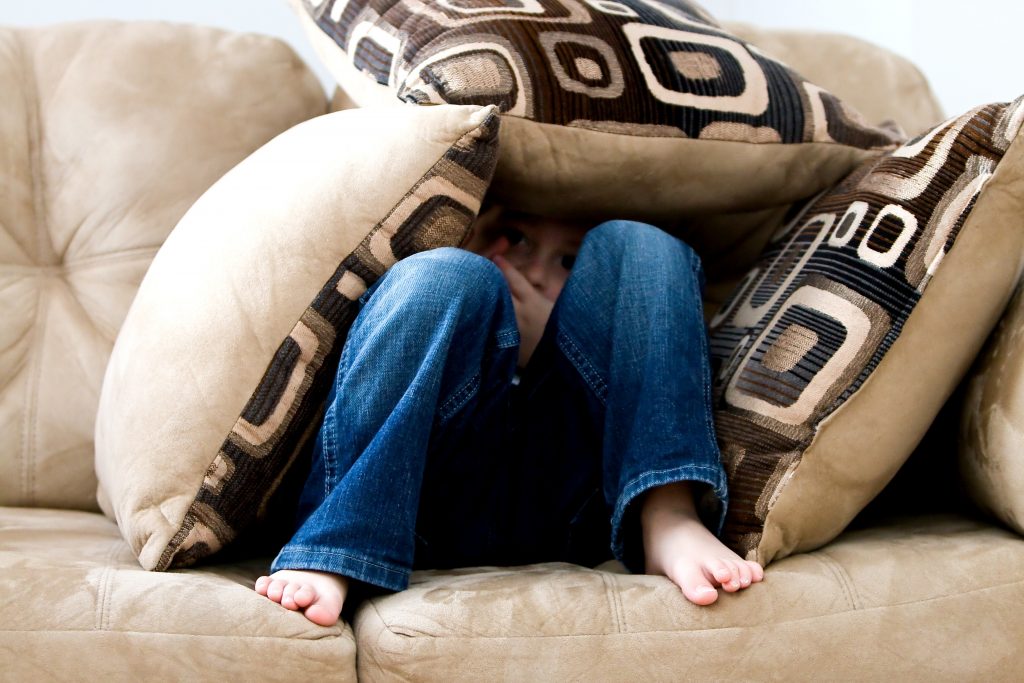Creating a supportive environment for children can help them handle the stresses of growing up and provide tools for maintaining mental health.

Is your child withdrawn and glum on most days? Have you noticed a drastic fall in their grades? Have they lost interest in activities that they loved in the past? Do they get increasingly cranky and aggressive? Are the mood swings hampering their everyday routine? There is a chance that your child is suffering from mental health issues. Anxiety and depression in kids are widespread these days.
Children are often malleable, gullible, and innocent of the ways of the world. Peers, teachers, and families are some significant influences in a kid’s life. It is, therefore, imperative for parents to create a healthy and holistic environment for their children. You will want to protect your young one from all the pain and suffering of the world, but that is not how they would grow up to be mature members of society. Develop a transparent and trusting bond with your kids. Here are some tips to ease anxiety in children:
Create a Safe Space
Children instinctively learn to imitate their parents and adopt their mannerisms. Young ones are especially impressionable. They are more likely to develop toxic behavior patterns and perceptions based on what they see at home. The relationship between the parents, the lifestyle choices you have- children observe everything.
Some children in foster care have also experienced abuse – both physical and mental- from their peers and elders. Create a safe space for your kid, teach them the right words to express their emotions. They should feel comfortable to talk about their troubles with you.
Encourage Them to Maintain a Journal
Sometimes, kids are not comfortable talking about their troubles. It might be something as simple as getting a bad grade, but children often find it easier to express their emotions through other mediums. If your child is unwilling to discuss their issues with you, then encourage them to write it out. Maintaining a journal or diary is a very intimate process. It helps them catalog their day, keep a check on their thoughts, and record their reactions to things in a systematic way. Journals are also spaces where one can be truthful.
Having an outlet for emotions is very important. Kids, in particular, must be taught the value of letting their feelings out. Suppressing them would only add on to the trauma and manifest itself in unhealthy ways. Motivate your child to paint, dance, write poetry, play an instrument, sing- art is the ultimate healer of the heart.
Talk it Out
Often, a good conversation is all it takes for your child to open up about their troubles. It can be anything from bad grades to bullying- the life of a child is not all rainbows and sunshine. Believe in your child, validate and treat their concerns with the utmost seriousness. It takes real effort to build that sense of trust with your child.
Diet and Exercise
One of the quickest ways to battle anxiety is to practice deep breathing exercises. Ask your child to take a long deep breath through the nose. Follow this pattern the next time you notice them getting worked up. Yoga, meditation, and pranayama also work wonders when it comes to calming the mind.
Physical exercises, light workout regimes, or any sports activities also help release the pent-up energy in kids. Enroll your children in activities that interest them, but ensure that you don’t fill up their entire day. Encouraging kids to follow a balanced diet, eat their veggies, and regular exercises contribute to their holistic development.
Give Them Space
Kids grow up pretty quickly. It might seem like just yesterday when you helped your toddler take their first steps. Now they’re ready for their classes and dances and numerous other activities. As parents, you need to accept that your child has grown up. You are no longer the center of their universe. That doesn’t mean that your value has in any way decreased. Look out for your young one. Keep an eye out on the kind of company they are keeping. But don’t try to impose your authority on them. Instead, try to gently but firmly explain the ways of the world.
Also, respect their privacy and sense of individuality. If your child needs help or feels comfortable approaching you, they will. There is a fine line between protecting and pampering. Don’t smother them with your affection. Encourage them to be self-reliant. Work on your relationship, earn their respect, treat them like responsible individuals. Having a strong sense of self-worth and a foundation of support from you can greatly reduce the anxiety they feel.
Author Bio
Mary Jones is the co-founder & editor-in-chief at TopMyGrades, which focuses on Content Marketing Strategy for clients from the Education industry in the US, Canada & UK. Mary has conducted a series of webinars for AssignmentEssayHelp as an assignment expert. She has extensive content editing experience and has worked with MSNBC, NewsCred & Scripted. She has also authored blogs on Lifehack.org, Wn.com, Medium.com, Minds.com, and many more digital publications.
The post Tips for Easing Child Anxiety appeared first on A Family For Every Child.
Read more: afamilyforeverychild.org
